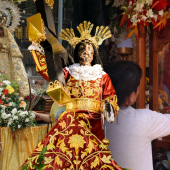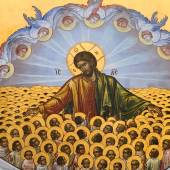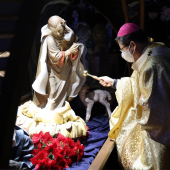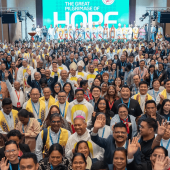From Classroom of Penang to Martyrdom in Seoul: Saints Laurent Imbert and Jacques-Honoré Chastan
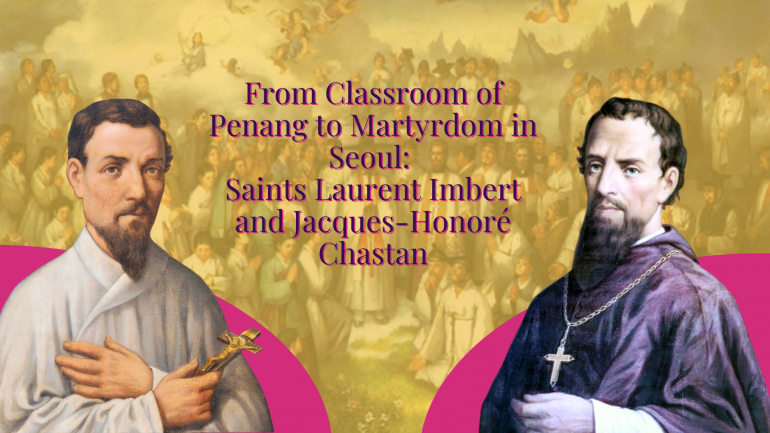
On September 2o, when the Church commemorates the feast of the 103 Korean Martyrs, we remember that their path to holiness passed through Malaysia.
Long before their blood was shed on a Korean hillside, Bishop Laurent Imbert and Father Jacques-Honoré Chastan (two of the 103 Korean Martyrs) walked the quiet grounds of College General in Penang, teaching seminarians the mysteries of faith. Founded in 1665 in Ayutthaya, Thailand, and relocated to Penang in 1808, College General is the oldest Catholic seminary in Southeast Asia. Over the centuries, it has formed countless priests as well as bishops, archbishops and cardinals who have served the Church in Asia with courage and devotion.
Laurent Imbert and Jacques-Honoré Chastan were among its professors, preparing young men for ministry.
From Penang to Korea’s Mission Fields
The lives of Imbert and Chastan took a dramatic turn when they were assigned to Korea. In the early nineteenth century, the Joseon dynasty of Korea strictly forbade foreign influences, and Christianity was regarded with suspicion.
Yet a small but fervent community of believers had emerged, born not from foreign missionaries but from Koreans who had first encountered the Gospel in China. By the 1830s, this underground Church numbered some ten thousand faithful, living their faith in secrecy and in constant fear of discovery.
Appointed the first Vicar Apostolic of Korea, Bishop Imbert slipped into the country under disguise, joined by Fathers Chastan and Pierre Maubant. They moved quietly through villages, often hidden in huts or barns, baptising, celebrating Mass, and consoling the faithful. Their lives were marked by exhaustion, constant travel, and the ever-present danger of betrayal. Yet their presence gave strength to a Church that longed for the sacraments and the touch of a shepherd’s hand.
In 1839, persecution broke out with renewed ferocity. Soldiers hunted Christians, and entire families were imprisoned. Bishop Imbert, fearing the wholesale destruction of his flock, resolved to give himself up.
In a letter written shortly before his arrest, he said: “To save the Christians, I will give myself up. Once I am taken, the others will be left in peace.” It was an act of profound self-sacrifice, echoing the words of Christ, “The good shepherd lays down his life for his sheep.”
When the bishop surrendered, Fathers Chastan and Maubant chose not to flee. They, too, presented themselves to the authorities. On September 21, 1839, they were taken to a place outside Seoul and executed by beheading. Their blood, shed on Korean soil, became the seed of a Church that has since grown to millions of faithful.
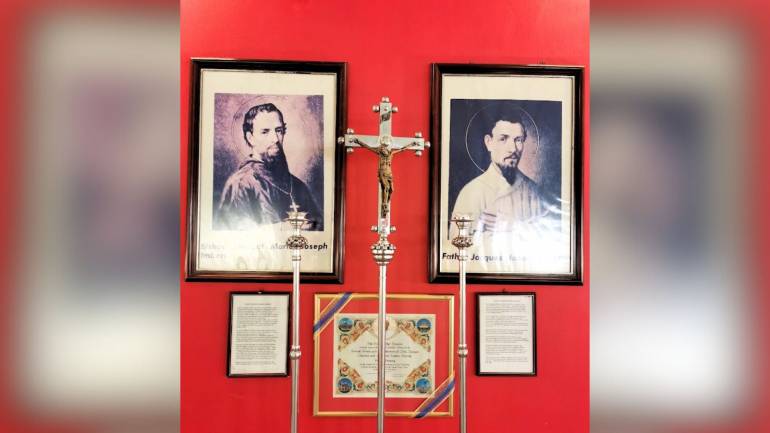
Martyrdom and a Living Legacy
Nearly 150 years later, in 1984, Pope John Paul II canonised Bishop Imbert, Father Chastan, Father Maubant, and one hundred Korean martyrs during his apostolic visit to Korea.
For the Church in Asia, their lives are remembered as a testimony of fidelity, courage, and pastoral love. For Malaysian Catholics, there is a deeper resonance, for the seminary in Penang where they once taught still stands, continuing its quiet mission of forming priests for the region. In its long history, College General has endured relocations, wars, and changing political climates, yet it has never ceased to form men for the priesthood. The connection between Penang and Seoul, between classroom and martyrdom, is a reminder that the roots of holiness often begin in hidden places.
As College General celebrates 365 years of priestly formation, beginning September 29, it does so in the shadow of these saints, and with the knowledge that the seeds planted in Penang have blossomed in ways both expected and unexpected.
The Malaysian connection to the Korean martyrs is not just a historical footnote but a call to memory. It is a reminder that sanctity is never far from home, that our soil too has nurtured lives that would one day illuminate the world.
(Joseph Masilamany is a veteran Malaysian journalist and freelance writer with extensive experience in Catholic media. He contributes regularly to leading Catholic news agencies and platforms. He is also an alumnus of College General. )
Radio Veritas Asia (RVA), a media platform of the Catholic Church, aims to share Christ. RVA started in 1969 as a continental Catholic radio station to serve Asian countries in their respective local language, thus earning the tag “the Voice of Asian Christianity.” Responding to the emerging context, RVA embraced media platforms to connect with the global Asian audience via its 21 language websites and various social media platforms.









